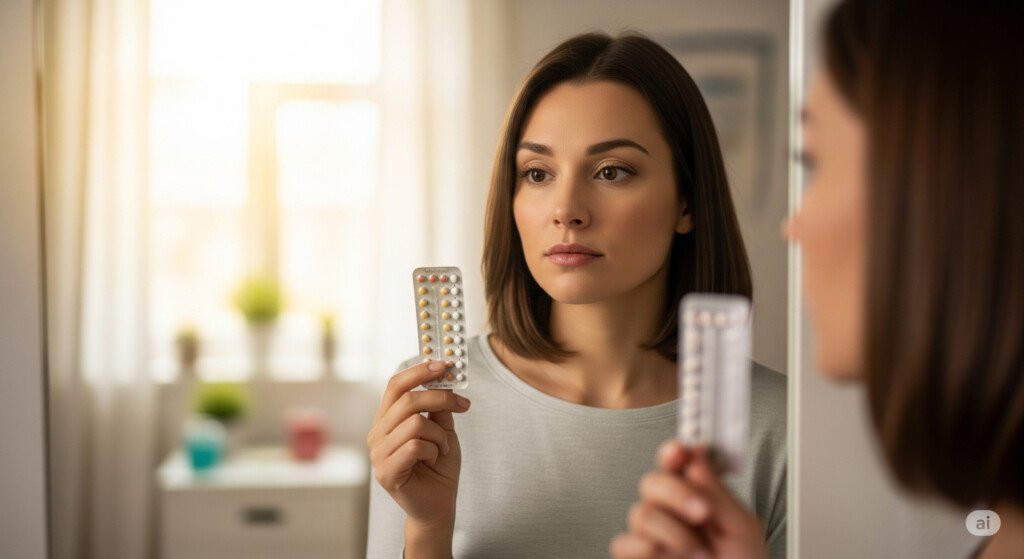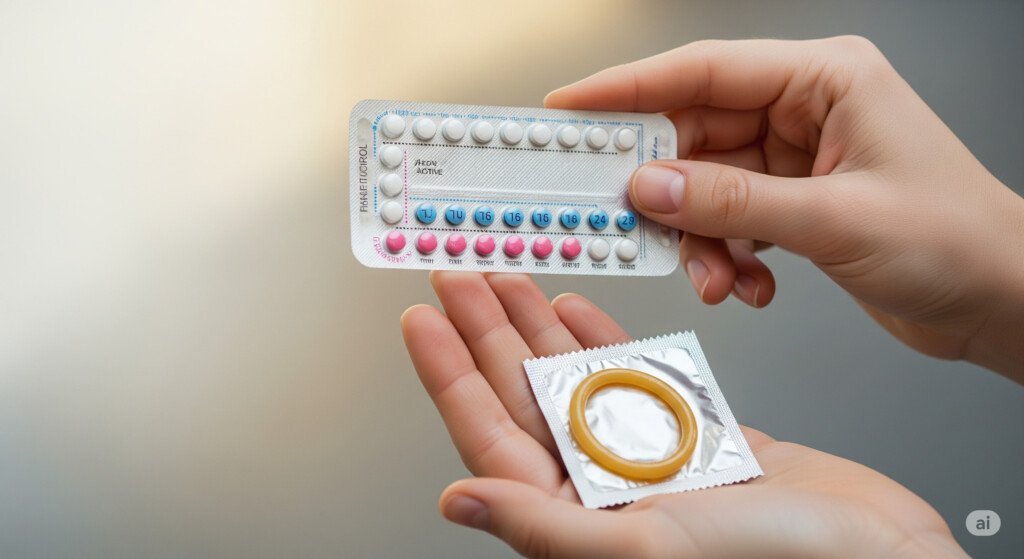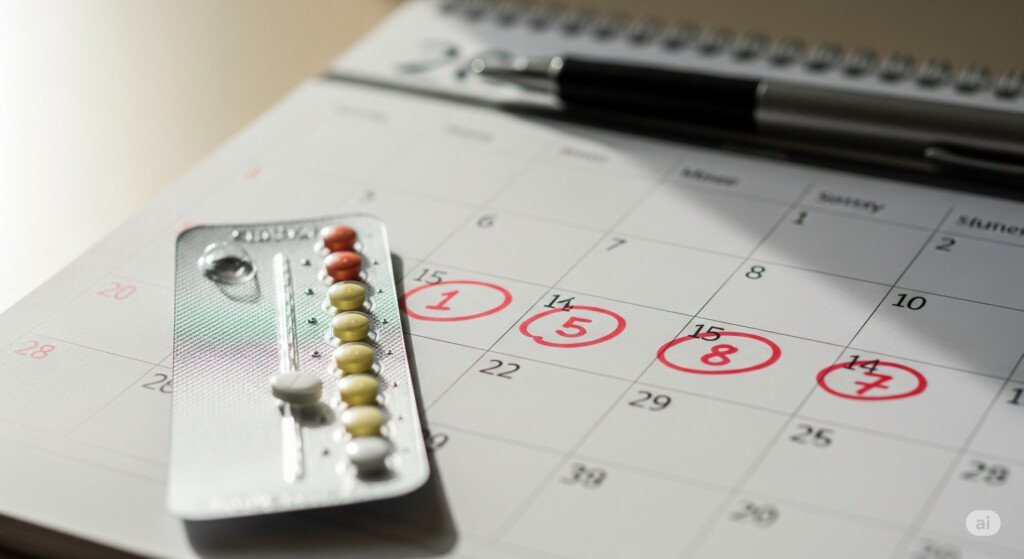How Long Does Birth Control Stay in Your System: Complete Guide for Women
If you’ve ever wondered how long does birth control stay in your system, you’re not alone. Many women have questions about its effects, timing, and what to expect after stopping or switching birth control. It’s a topic that sparks curiosity, especially since every woman’s body responds differently to hormonal changes. Whether you’re considering stopping your pill or just curious about how birth control works in your body, understanding the timeline and factors at play can make a big difference in your decision-making process.

How Birth Control Affects Your Body: What You Need to Know
When it comes to how long birth control stays in your system, there are a few key factors that come into play. Birth control pills, patches, implants, and shots all affect your hormones, and each method has its own timeline. While some women may have immediate returns to fertility after stopping, others may take longer. Here’s the thing: it’s not one-size-fits-all. That said, understanding the general timeline can help ease your mind.

How Birth Control Works in Your System
Hormonal birth control methods, such as pills and patches, work by preventing ovulation, thickening cervical mucus, and altering the uterine lining to prevent pregnancy. When you stop taking birth control, your body starts adjusting to its natural cycle again.
However, how long does birth control stay in your system? This depends on the type of birth control method you’re using, how long you’ve been using it, and your individual body’s metabolism.
For example:
- Birth Control Pills: Once you stop taking them, your body typically clears the synthetic hormones within a few days to a few weeks. Most women can expect their menstrual cycle to return within a few weeks to a couple of months.
- Implants and Injections: These may take longer for the hormones to leave your system. It can take several months for your fertility to return to normal after stopping an implant or injection.
In general, the younger you are, the quicker your body tends to return to its natural rhythm.
Does Birth Control Make Your Boobs Bigger?
It’s a common question among women, especially those considering or currently using hormonal birth control: Does birth control make your boobs bigger? The short answer is: it could.
For some women, hormonal birth control can cause mild weight gain or an increase in breast size due to hormonal fluctuations, primarily estrogen. However, the change is usually temporary. Once your body adjusts, the size of your breasts often returns to normal.

Birth Control and a Condom: Should You Use Both?
Some women wonder whether it’s necessary to use a condom in addition to birth control. The answer is yes, for several reasons. While birth control pills and other hormonal methods are highly effective at preventing pregnancy, they don’t protect against sexually transmitted infections (STIs). Condoms are the only method that provides protection from STIs.
So, even if you’re on birth control, it’s a good idea to consider using condoms, especially with new or multiple partners. Combining both methods increases your protection against both pregnancy and STIs.

Ovarian Cysts and Birth Control Pills
It’s not uncommon for women to experience ovarian cysts while on birth control. Ovarian cysts are fluid-filled sacs that can form on the ovaries, and some women may develop them even while using hormonal contraception.
However, many types of birth control pills are designed to prevent the formation of these cysts. The hormones in birth control pills help regulate ovulation, preventing the ovarian follicles from developing into cysts.
If you do develop an ovarian cyst while on birth control, most are benign and don’t cause serious issues. However, if you have concerns about cysts, it’s a good idea to consult with your healthcare provider to discuss alternative birth control options that may suit your body better.

Pros and Cons of Popular Birth Control Brands
When considering how long birth control stays in your system, it’s crucial to choose the right brand that fits your needs. Different birth control brands come with unique hormone combinations, side effects, and benefits. Below, we break down the pros and cons of 10 popular birth control brands to help guide your decision-making process.
Estarylla Birth Control
- Pros: Estarylla is a low-dose combination pill, which means it combines both estrogen and progestin. This can help in reducing acne and regulating menstrual cycles, which is a benefit for women who experience these issues. It’s particularly helpful for managing irregular periods, making it ideal for women who want more control over their cycles.
- Cons: Some users report side effects such as headaches, mood swings, and nausea. Since it contains estrogen, it may also cause slight weight gain or other estrogen-related side effects, such as breast tenderness.
- Notes: Estarylla is an affordable, generic option for those who want an effective yet budget-friendly pill. It’s a good choice for women who want a mild hormonal birth control method with minimal side effects.
Nikki Birth Control
- Pros: Nikki is known for being highly effective with fewer hormonal fluctuations compared to some other pills. This stability is great for women looking to reduce mood swings and other hormone-related issues. It’s also known for being easy to use and consistent in its dosage.
- Cons: As with many hormonal birth controls, Nikki can cause side effects like nausea and weight gain, especially for women sensitive to hormone changes. It’s important to monitor how your body reacts during the first few months of use.
- Notes: Nikki is ideal for women who have had negative experiences with other higher-dose estrogen pills. Its consistent hormone levels make it a solid option for those seeking fewer fluctuations in mood and physical well-being.
Aviane Birth Control
- Pros: One of the major benefits of Aviane is its affordability, as it’s a generic version of a well-known birth control pill. It’s effective in reducing menstrual bleeding and pain, making it a good option for women suffering from heavy periods or cramps.
- Cons: Some women experience increased spotting between periods or changes in mood, especially during the first few months. These side effects are typically mild but can be bothersome to some users.
- Notes: Aviane is an excellent choice for women seeking an affordable and reliable birth control pill. If you’re looking for a generic option that’s easy on your wallet and effective, Aviane might be worth considering.
Errin Birth Control
- Pros: Errin is a progestin-only pill, which makes it an ideal choice for women who cannot use estrogen. It helps to regulate periods and prevent ovulation without the estrogen component. This can be beneficial for women with certain health conditions, like blood clotting disorders, where estrogen could pose risks.
- Cons: Some women may experience irregular periods or spotting while on Errin, as it can disrupt the natural menstrual cycle due to the lack of estrogen. These irregularities are common with progestin-only pills, but they generally subside after a few months.
- Notes: If you need to avoid estrogen for health reasons, Errin is an excellent alternative. However, expect some possible period irregularities during the first few months.
Heather Birth Control
- Pros: Heather is a combination pill that can help regulate menstrual cycles and treat acne, which is a huge benefit for women who struggle with skin issues due to hormonal fluctuations. It’s a well-rounded option for those looking to manage both contraception and acne.
- Cons: The downside of Heather is that it may cause side effects like nausea, headaches, or weight gain in some women. These effects are common with combination birth control pills, but they tend to improve over time.
- Notes: Heather is a great option if you’re looking to treat acne while also preventing pregnancy. It’s particularly useful for women who want an all-in-one solution for hormonal management.
Nurx Birth Control
- Pros: One of the biggest selling points of Nurx is the convenience of home delivery, which allows women to receive their birth control pills without leaving their house. It offers a variety of customizable pill options, ensuring you get the best pill for your body and lifestyle.
- Cons: Because Nurx requires a prescription, some women may find the process of ordering online a bit more time-consuming compared to purchasing birth control directly at a pharmacy. Additionally, it may take a few weeks for your body to adjust to a new birth control brand.
- Notes: Nurx is perfect for women who prefer convenience and flexibility when it comes to receiving their birth control. The ability to choose and receive your birth control from home makes it a standout choice for busy women.
Vestura Birth Control
- Pros: Vestura is a combination pill that offers a balanced mix of hormones. It’s known for its effectiveness in reducing menstrual symptoms, including cramps and heavy bleeding. Women who struggle with these issues may find relief with Vestura.
- Cons: Some women report experiencing side effects like headaches, nausea, and changes in mood. These side effects are typical with combination birth control pills but can be manageable with time or by switching to another brand.
- Notes: Vestura is a solid choice for women who want to manage both contraception and menstrual symptoms effectively. It’s ideal for those who need a reliable, low-dose option for birth control.
Aurovela Birth Control
- Pros: Aurovela is known for its ability to help with acne and reduce heavy menstrual bleeding. If you struggle with both skin issues and irregular periods, Aurovela may help you address both concerns at once.
- Cons: Some users report side effects like nausea, mood swings, or weight changes, though these symptoms are not uncommon with hormonal contraceptives. However, the side effects usually go away after a few cycles.
- Notes: Aurovela is a reliable and affordable option for women who want to manage both acne and heavy menstrual bleeding while using birth control.
Syeda Birth Control
- Pros: Syeda is a combination pill that can help reduce acne and menstrual cramps. It is highly effective for women who need a consistent birth control method while also dealing with skin issues related to hormones.
- Cons: As with other combination pills, Syeda may cause headaches, nausea, or mood changes, especially during the first few months of use. These side effects tend to diminish over time.
- Notes: If you’re looking for a reliable birth control option that also targets acne, Syeda could be a great fit for you.
Camila Birth Control
- Pros: Camila is a progestin-only pill that’s ideal for women who need to avoid estrogen, such as breastfeeding mothers or those with specific health concerns. It offers fewer hormonal fluctuations, making it gentler on the body for those sensitive to estrogen.
- Cons: Camila can cause irregular periods or spotting, especially during the initial months of use. This is a common side effect of progestin-only pills but typically resolves with time.
- Notes: Camila is a great option for women who need a progesterone-only pill or are breastfeeding, but be prepared for potential initial period irregularities.

Comparison Table: Birth Control Brand Pros & Cons
| Brand | Pros | Cons | Notes |
|---|---|---|---|
| Estarylla | Low-dose, reduces acne, regulates periods | Headaches, mood changes, nausea | Affordable, generic, mild hormonal options |
| Nikki | Effective, fewer hormonal fluctuations, easy to use | Nausea, weight gain | Great for women sensitive to high estrogen doses |
| Aviane | Affordable, reduces bleeding and pain | Spotting, mood changes | Reliable, generic option for lighter hormone doses |
| Errin | Progestin-only, ideal for estrogen-sensitive women | Spotting, irregular periods | Great for women avoiding estrogen |
| Heather | Regulates cycles, treats acne | Nausea, headaches, weight gain | All-in-one for hormonal issues and acne treatment |
| Nurx | Home delivery, customizable pill options | Prescription required, adjustment period | Convenient for busy lifestyles |
| Vestura | Balanced hormones, reduces menstrual symptoms | Headaches, nausea, mood changes | Solid for menstrual issues and low-dose contraception |
| Aurovela | Reduces acne and bleeding | Nausea, mood swings, weight changes | Affordable, reliable option |
| Syeda | Reduces acne, treats cramps | Headaches, nausea, mood changes | Reliable birth control, great for acne treatment |
| Camila | Progestin-only, minimal hormonal impact | Irregular periods, spotting | Great for breastfeeding mothers, progesterone-based |
Takeaway: Understanding Birth Control and Your Body
In conclusion, how long does birth control stay in your system depends on the method you use and your individual body. Most women find that their body returns to normal hormone levels within a few weeks to a few months after stopping birth control. It’s essential to be patient with your body as it adjusts, and always consult your doctor before switching methods or making changes.
If you’re thinking about discontinuing birth control or want to explore alternative methods, don’t hesitate to speak with your healthcare provider to find the best option for you. Your health and well-being are the top priority!
FAQ
1. If you take birth control during pregnancy, what happens?
If you accidentally take birth control during pregnancy, it’s important to stop using it right away. However, studies show that hormonal birth control does not typically harm the pregnancy or the baby. If you’re pregnant and concerned, consult your doctor for guidance.
2. Does birth control make you tired?
For some women, birth control can cause fatigue as a side effect. Hormonal fluctuations can affect your energy levels, but this varies from person to person. If you’re feeling unusually tired, it may be worth discussing with your healthcare provider.
3. Does ashwagandha affect birth control?
Ashwagandha may interfere with the effectiveness of birth control by affecting hormone levels. If you’re taking both, it’s a good idea to consult your healthcare provider to ensure they won’t negatively interact.
4. Will birth control make your breasts bigger?
While some women experience an increase in breast size due to hormonal changes from birth control, it’s typically temporary. Breast size may return to normal once the body adjusts to the hormone levels.
5. Does birth control make you infertile?
No, birth control does not cause permanent infertility. After stopping birth control, fertility usually returns to normal within a few weeks to a few months. If you have concerns about fertility, it’s always best to consult with a healthcare provider.
Disclaimer:
This post may contain affiliate links. If you purchase through them, we may earn a small commission at no extra cost to you. Also, this content is for informational purposes only and does not substitute professional medical advice.







